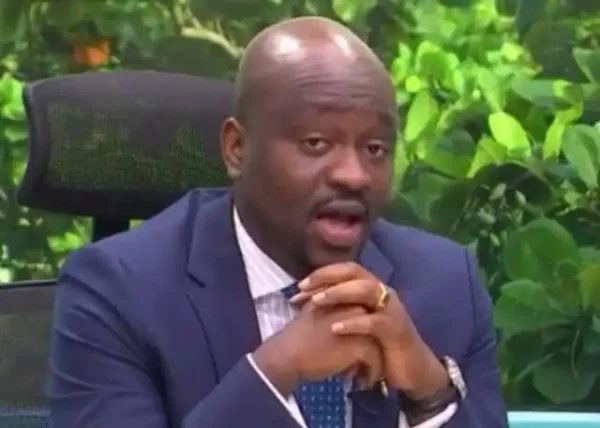A senior National Democratic Congress communications team member has warned that the ruling party is “detaching from the people” just months after its decisive electoral victory, risking the same complacency that costs political parties power.
Private legal practitioner Hamza Suhuyini expressed concern over what he described as growing distance between NDC leadership and ordinary Ghanaians during a Political Strategy Lab event at the University of Media and Communication Studies on Saturday.
“The leader says it, but again, look at the high table,” Suhuyini observed, referencing the sparse attendance of NDC officials at the academic forum. “If we had to turn back the hands of time about eight, six months ago, the high table would have been full of NDC big names; that is how we lose power.”
The NDC secured a commanding parliamentary majority of 183 out of 276 seats in the December 2024 elections, with President John Dramani Mahama winning decisively against the New Patriotic Party’s candidate. However, Suhuyini argues this success may be breeding dangerous overconfidence.
At the university event, Suhuyini counted only two NDC representatives among the speakers, compared to three active NPP members, despite the NDC’s governing status. He noted that neither of the NDC attendees held government positions, suggesting senior officials are avoiding public engagement opportunities.
“That is how you get detached from the very people who gave you their mandate,” Suhuyini warned. “So if he makes the statement that we have started losing it, it is a statement of fact; it is not propaganda.”
Suhuyini, who has been active in recent media appearances defending the NDC government’s record on various issues including illegal mining (galamsey) and judicial reforms, made these critical observations during the academic forum. His comments represent unusual public criticism from within the ruling party’s own communication structure.
Suhuyini praised the NPP’s continued engagement despite their opposition status, noting that even their minority leader found time to participate in the academic forum. “They have started regrouping. It is quite clear that is why, even as minority leader, he’s had the time to be here.”
The lawyer’s public criticism represents unusual candor from within the NDC’s own ranks. Party insiders rarely voice such concerns publicly, particularly so early in a new administration’s tenure.
“While they are starting to make party steps forward, we are competing with ourselves to run back from the very gains we chalked in the last election,” Suhuyini observed. “Unfortunate but that is the reality.”
His warnings echo historical patterns in Ghanaian politics, where governing parties have lost touch with voters through perceived arrogance or neglect of grassroots concerns. The NDC itself experienced such disconnection during its previous tenure from 2012 to 2016, ultimately losing power to the NPP.
The timing of Suhuyini’s comments proves significant as the NDC government is still in its early months. Political strategists suggest that maintaining regular public engagement and community presence remains crucial for sustaining electoral support across four-year terms.
Opposition parties typically use governing parties’ perceived detachment as campaign ammunition, arguing that power has made leaders forget their promises and obligations to ordinary citizens.
The University of Media and Communication Studies event highlighted this dynamic, with NPP members demonstrating continued public engagement despite their electoral defeat, while ruling party officials appeared less visible in academic and civil society forums.
Suhuyini’s frank assessment suggests internal recognition within the NDC that electoral success alone does not guarantee sustained political relevance without continued grassroots connection and public accountability.
Whether the NDC leadership will heed such warnings or dismiss them as premature remains unclear, but the comments underscore ongoing tensions between governing responsibilities and political engagement that have historically shaped Ghana’s democratic competition.
Source: newsghana.com.gh











